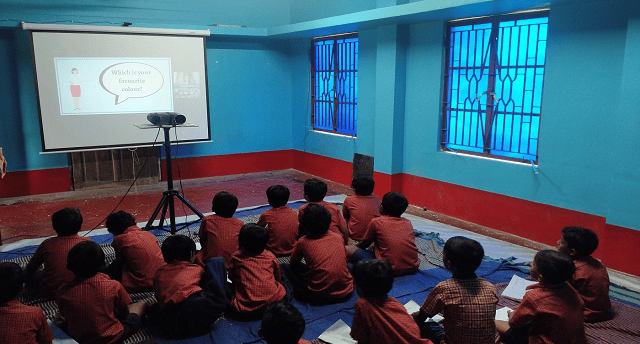Universal Education is key to India's drive towards becoming a developed society
Universal education in India is vital for empowering individuals, reducing inequality, fostering economic growth, and promoting societal progress, ultimately shaping a brighter future for the nation.
8/14/20243 min read


Universal education is pivotal for India’s growth and development, especially when viewed through the lens of its rural and remote areas.
As one of the fastest-growing economies in the world, India is home to a vast and diverse population, where education acts as a key driver of social and economic progress. However, the disparities in educational quality and accessibility between urban and rural regions remain stark, making the case for universal education in less accessible areas even more compelling.
Bridging the Gap
First and foremost, the importance of universal quality education lies in its ability to bridge the educational attainment gap between urban and rural populations.
Rural areas often face significant barriers to education, including inadequate infrastructure, lacking qualified teachers, and socio-economic disadvantages. By ensuring that every child has access to quality education, regardless of geographical location, we can empower rural communities, elevate their standard of living, and foster a more equitable society.
Economic Development
Education is intricately linked to economic development. In rural India, where agriculture remains the primary livelihood, advancing educational standards can enhance agricultural productivity through training in modern farming techniques, sustainability practices, and market access. Farmers educated in these areas can improve yield and quality, ultimately leading to greater food security and increased income. Moreover, with better educational facilities, rural youth would be more equipped to pursue diverse career opportunities, reducing rural-to-urban migration, which often strains city resources and infrastructure.
Empowering Women
Universal quality education can dramatically change the narrative around gender equality, particularly in rural India. Educated women are more likely to contribute to their families’ economic well-being and invest in the education and health of their children. Providing girls access to quality education not only delays marriage and childbirth but also fosters independence and critical thinking. This aspect is crucial since rural areas often retain traditional views on gender roles that hinder progress. By prioritizing education for girls, India can cultivate a generation of empowered women who can contribute significantly to society.
Health and Well-being
The correlation between education and health is evident, with better-educated individuals often making more informed health choices. In rural regions, access to quality education can lead to improved public health outcomes. Educated parents are more likely to seek timely medical help, understand health-related information, and ensure their children are vaccinated. Consequently, universal education can play a substantial role in preventing common health issues, decreasing infant mortality rates, and promoting overall community well-being.
Technological Integration
As technology continues to reshape the world, integrating it into education is essential for preparing future generations. However, rural and remote areas often lag in access to technology. Ensuring universal quality education must include providing digital resources, internet connectivity, and training in digital literacy. This focus not only prepares students for the global job market but can also enhance education delivery method through e-learning platforms and virtual classrooms, reaching students who might otherwise be excluded from quality education experiences.
Fostering Civic
Engagement Education fosters civic responsibility and engagement. Students equipped with critical thinking skills and a broader awareness of societal issues are more likely to participate in community decision-making processes. By prioritizing education in rural areas, governments can instill values of democracy and social responsibility among young people, leading to more informed and active citizens who contribute positively to their communities.
Sustainable Development Goals (SDGs)
Universal quality education aligns with the United Nations’ Sustainable Development Goals, particularly Goal 4: Ensure inclusive and equitable quality education and promote lifelong learning opportunities for all. For India to meet these goals, special emphasis on rural and remote education is crucial. Investing in education in these areas is not just a moral imperative; it is a global responsibility that will impact the future trajectory of India’s socio-economic landscape.
In conclusion, universal quality education is not a luxury but a necessity, especially for rural and remote areas in India. Such education holds the potential to dismantle the cycle of poverty, empower marginalized groups, and foster a more equitable and sustainable society. It is a fundamental right that allows individuals to realize their potential and contributes to the nation’s overall progress. As India moves forward, implementing strategies focused on ensuring universal access to quality education will be essential in carving out a prosperous future for its diverse populace.
